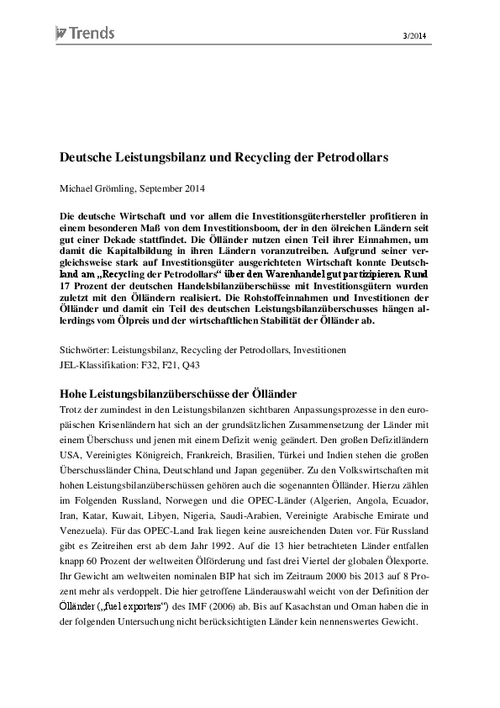The German economy and especially manufacturers of capital goods have benefited hugely from the investment boom enjoyed by the oil-rich countries for over a decade now. The oil producers allocate a portion of their revenues to furthering capital formation at home. With an economy much more oriented to the manufacture of capital goods than other countries’, Germany’s trade in goods has enabled it to play a significant role in the "recycling of petrodollars". Recently about 17 per cent of Germany’s trade surpluses in capital goods have come from business with petroleum-exporting countries. This also means, however, that oil countries’ primary sector revenues and their investments – and thus part of the German current account surplus – depend on the oil price and the economic stability of the oil producers themselves.

The German Current Account Balance and the Recycling of Petrodollars
IW-Trends


Michael Grömling: Deutsche Leistungsbilanz und Recycling der Petrodollars
IW-Trends

More on the topic

The 9th IW Survey of Further Training
In 2016 some 85 per cent of companies in Germany were active in continuing vocational training, using a broad mix of methods.
IW
Has the German Economy Reached its Limit?: Skilled Labour Shortages as a Brake on Growth
The German economy is performing significantly better than was expected in the first few months of this year. During the course of 2017, certain early fears – especially of a weakening of the global economy due to increasing protectionism – have proved ...
IW